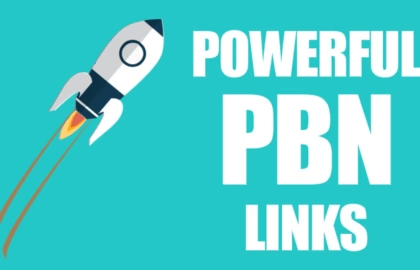Off Page SEO In today’s digital landscape, having a website isn’t enough; you need to make sure it stands out from the crowd. While many focus on optimizing their site internally, off-page SEO is equally important for improving visibility and attracting traffic. This article will delve into off page SEO, exploring what it is, why it’s crucial, and how to effectively implement it to enhance your website’s authority and presence.
Understanding Off Page SEO
What Is Off Page SEO?
Off-page SEO refers to all the activities that take place outside of your website but impact your search engine rankings. It’s primarily concerned with building your site’s reputation, trustworthiness, and authority through external factors. Unlike on-page SEO, which focuses on elements within your site (like content, meta tags, and URLs), off-page SEO strategies work to establish your site’s credibility with search engines and users alike.
The Importance of Off Page SEO
- Reputation Management: A solid reputation boosts user trust and can lead to higher conversion rates.
- Traffic Generation: Off-page strategies often drive referral traffic, which can contribute to direct visitors.
- Link Building: The number and quality of backlinks significantly affect search rankings. Quality links can elevate your site’s authority.
- Brand Awareness: Increased online mentions and backlinks help in making your brand more recognizable.
Key Strategies for Off Page SEO
Link Building
Link building remains one of the cornerstone strategies of off page SEO. The goal is to acquire backlinks from reputable sites pointing to your own. Search engines view backlinks as endorsements, which can elevate your site in SERPs.
How to Build Quality Backlinks:
- Guest Blogging: Write articles for other blogs in your niche. Ensure you include a link back to your site.
- Content Marketing: Create high-quality, shareable content like infographics, videos, or comprehensive guides. This encourages others to link back to your site.
- Collaborate with Influencers: Partnering with industry influencers can help get your content in front of a larger audience and earn backlinks.
- Business Directories: Submit your site to reputable business directories.
“Building quality backlinks is not just about quantity; it’s about quality and relevance too.”
Social Media Engagement
While social media doesn’t directly influence Off Page SEO rankings, it can amplify your content and inspire sharing, which indirectly contributes to your off-page SEO efforts.
Tips for Effective Social Media Engagement:
- Share valuable content consistently across platforms.
- Engage with your audience by responding to comments and messages.
- Participate in relevant groups and forums to build relationships within your industry.
Online Reviews and Reputation Management
Positive online reviews can significantly enhance your Off Page SEO efforts. They serve as social proof and contribute to your website’s credibility.
Steps to Manage Online Reviews:
- Encourage Reviews: Ask satisfied customers to leave reviews on Google, Yelp, and other platforms.
- Respond to Reviews: Engage with both positive and negative feedback professionally.
- Monitor Your Reputation: Use tools like Google Alerts to keep tabs on mentions of your brand.
Off Page SEO Utilizing Online Communities and Forums
Participating in online forums and communities related to your niche is another effective off-page SEO strategy. By providing valuable insights and answering questions, you establish authority and promote your site organically.
Where to Engage:
- Reddit (find relevant subreddits)
- Quora (answer questions related to your industry)
- Niche-specific forums and discussion boards
Influencer Marketing
Partnering with influencers can yield significant off-page SEO benefits by reaching a broader audience and establishing your brand as trustworthy.
How to Leverage Influencer Marketing:
- Identify influencers in your industry who align with your brand values.
- Collaborate on content, such as co-hosting webinars, writing joint blog posts, or doing shout-outs.
Measuring the Effectiveness of Your Off-Page SEO
Tracking Your Backlinks
Use tools like Ahrefs or Moz to monitor your backlink profile. Track new backlinks, referring domains, and assess the quality of the links.
Analyzing Referral Traffic
Google Analytics enables you to analyze how much traffic you’re getting from different sources. Check your referral traffic to understand the effectiveness of your off-page strategies.
Monitoring Brand Mentions
Track how often your brand is mentioned online using tools like BuzzSumo or Mention. This helps in assessing your overall online presence and reputation.
Conclusion
Off-page SEO is a vital aspect of improving your site’s visibility and authority. By focusing on link building, social media engagement, reputation management, community participation, and influencer marketing, you can enhance your website’s performance on search engines.
Take the time to implement these strategies, and don’t forget to monitor your progress. Every effort you make towards off-page SEO can lead to better rankings, increased traffic, and ultimately, greater success for your online presence.
Do you have any experiences with off-page SEO that you’d like to share? Let us know in the comments!
Resources:






